Presentation
POLITECNICO DI MILANO (POLIMI) is a public scientific-technological university founded in 1863 which trains engineers, architects and industrial designers. It is organised into 12 departments and a network of 4 Schools of Engineering, Architecture and Industrial Design. The total number of students enrolled is approximately 47 000, which makes POLIMI the largest Engineering School in Italy. POLIMI has always focused on the quality and innovation of its teaching and research, developing a fruitful relationship with business and industry by means of experimental research and technological transfer. Today Politecnico di Milano is taking part into the European and world networks of leading technical universities.
- In the eLECTRO project the “Chemical Reaction Engineering and Chemical Kinetics” CRECK lab. will be involved. This group is a worldwide reference in the field of pyrolysis, gasification and combustion of fossil and alternative fuels, including biomasses and plastic waste, and has a consolidated experience in the field of the modelling of chemical reactors and industrial processes. A characteristic feature of the group is the multi-scale approach to the research activity, which ranges from fundamental chemical kinetics to the industrial application in pyrolysers, gasifiers and furnaces.
- The experience acquired in the kinetic modelling of complex reaction networks has already made available proprietary computational tools for a very versatile kinetic analysis, mechanism development and validation, and mechanism reduction approaches, which will be used in this research program with a focus on plastic waste pyrolysis.
POLIMI has been involved in several H2020 projects focused on pyrolysis and/or steam cracking such as RESIDUE2HEAT, IMPROOF, CLEAN-Gas.
Main tasks in ELECTRO
POLIMI will be responsible for the development of kinetic models describing the thermal degradation of most common polymers (PP, PE, PS, PVC, PET, PA) largely present in municipal plastic waste. These models will predict the rate of polymer degradation as well as the formation of main products and byproducts, including the release of pollutant inorganic gases, which can affect downstream processes, like HCl or HCN. POLIMI will also develop kinetic models for the secondary gas-phase reactions, which are needed to identify optimal reactor operating conditions. POLIMI will develop an optimisation tool, which will allow to surrogate the feed properties, such as elemental composition and density, using the entire palette of polymers for which the degradation kinetic models are developed and validated. POLIMI will finally optimise the process conditions and process design for four waste feedstocks with different composition coming from four countries.
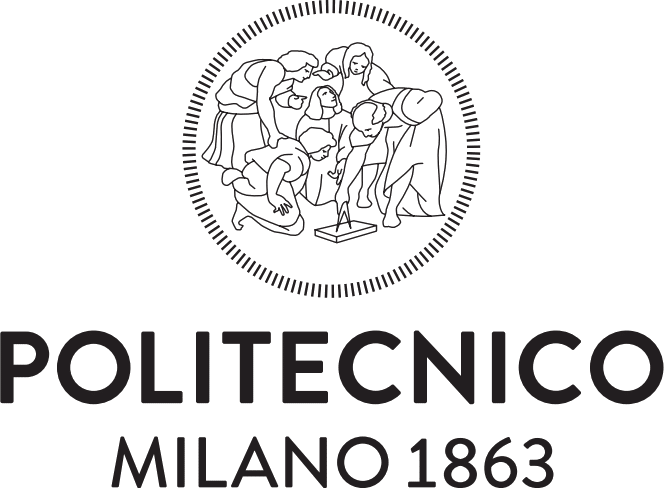
Key people on the project
Tiziano Faravelli (full professor) is member of the CRECK Lab at Politecnico di Milano. His main activity refers to Chemical Reaction Engineering of complex systems: pyrolysis, partial oxidation and combustion modeling of gas, liquid and solid fuels, both fossil and renewable fuels. In particular he is focused on circular economy, biomass and biooil use and plastic thermal recycle. During this activity process sustainability is the main aspect, with attention to pollutant formation (NOx, SOx, PAH and soot) from the investigated processes.
He is associate editor of Combustion and Flame and Fellow of the Combustion Institute. He is author of more than 250 papers and of several book chapters.
He coordinates the Politecnico activity of modeling of the plastic pyrolysis process and of the gas product release.
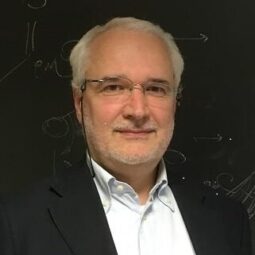
Alessio Frassoldati, member of the CRECK group, full professor at the Chemistry, Materials and Chemical Engineering Department of Politecnico di Milano since 2019 where he teaches “Fluid mechanics for chemical engineering” and “Chemical projects engineering and management”. He holds a MSc degree in Chemical Engineering and a PhD in Chemical Engineering from Politecnico di Milano. Member of the Italian Section of the Combustion Institute since 2001 and member of the Board in years 2011-2016. He served as member for the Silver Medal Committee and for the Bernard Lewis Fellowship Committee of the International Combustion Institute in years 2014, 2016 and 2018. Receiver of the 2020 Research Excellence Award of the CI. Co-author of the patent: Flameless boiler for producing hot water (EP2592362A1). He conducts research in the areas of detailed kinetic modelling of hydrocarbons and biofuels combustion, solid fuels pyrolysis and gasification, computational fluid dynamics (CFD) modelling and pollutant formation and safety aspects in combustion processes. Within the eLECTRO project, he coordinates the optimization activity with the aim to use the developed models to identify the ideal reaction conditions for the reactor, on the basis of the feedstock composition and the process needs.
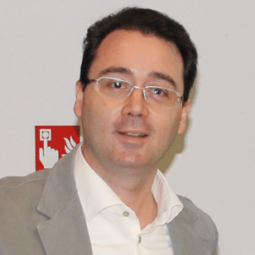
Alberto Cuoci is Associate Professor of Transport Phenomena at Politecnico di Milano, where he got a PhD cum laude in Industrial Chemistry and Chemical Engineering (2008). He was Visiting Professor at Université Libre de Bruxelles in 2014 and Invited Professor at CentraleSupélec (Paris) in 2019. In 2020, he was awarded the “Humboldt Fellowship” for Experienced Researchers, conducting research at RWTH Aachen University (Germany). He authored or co-authored over 140 papers published in international journals and more than 100 contributions to international conferences on topics encompassing combustion, detailed kinetics, and fluid dynamics of reactive flows.
The primary scientific interests of Alberto Cuoci lie in: i) numerical modelling of reactive flows with detailed kinetics; ii) development of numerical techniques for accelerating multidimensional CFD simulations with chemical reactions using machine learning algorithms; iii) multiscale analysis of catalytic processes and heterogeneous catalytic reactors.
Within the eLECTRO project, Alberto Cuoci focuses on the optimization of the process conditions and process design for different waste feedstocks with different composition coming from different Countries.
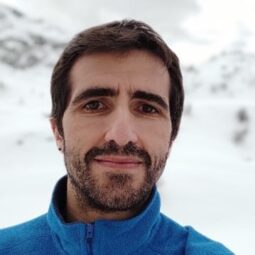
Alessandro Stagni is an Assistant Professor of Chemical Plants at the CRECK Modelling Lab at Politecnico di Milano. He has completed all of his studies at Politecnico di Milano in Chemical Engineering (BSc, MSc) and got a PhD cum laude in Industrial Chemistry and Chemical Engineering (2016). He has also been a Visiting Researcher at Stanford University (2015) and Technische Universität Darmstadt (2019).
His research activity deals with the chemical-kinetic analysis of reacting systems of hydrocarbon and non-hydrocarbon fuels at different levels, i.e. development and reduction of chemical kinetic mechanisms, and their application in CFD computations. The expertise he gained ranges from the pyrolysis and oxidation of hydrocarbon fuels and fuel surrogates to the formation mechanisms of pollutant species (NOx, SOx), both at a fundamental level and at higher scales (turbulent combustion devices, e.g. furnaces and engines). Within the current energy transition scenario, his research has recently expanded to the exploitation of carbon-free energy carriers (ammonia) for the on-demand energy release via either direct combustion or along with conventional fuels.
Within the eLECTRO project, he focuses on the kinetic modelling and analysis of gas-phase reaction of volatiles produced from condensed-phase pyrolysis, and the implementation of simplified approaches for the reactor modelling.

Matteo Pelucchi is Tenure-Track Assistant Professor of Chemical Engineering at Politecnico di Milano. His main research interests currently cover the development of detailed and semi-detailed kinetic models for pyrolysis and gasification of plastic and biomass wastes, pyrolysis of hydrocarbons to produce hydrogen and carbon materials, and homogeneous gas-phase cracking and oxidation reactions. In particular, in the context of plastic wastes recycling, Matteo is working on the development of theoretical tools for the determination of thermochemical kinetic parameters of use for chemistry model development.
Within the eLECTRO project, Matteo will focus on modelling the condensed-phase degradation kinetics of plastic waste mixtures, with particular focus on polymer-polymer kinetics and thermodynamics interactions by means of quantum metadynamic tools.
Matteo has obtained a Master in Chemical Engineering (2013) and a PhD in Industrial Chemistry and Chemical Engineering (2017) from Politecnico di Milano. He was appointed as visiting student at National University of Ireland Galway (2012-2013) and as visiting PhD at Argonne National Laboratory, where he developed his background on theoretical kinetics and on the development of automated tools for rate constants and thermochemistry calculations. In 2017, he was appointed as Assistant Professor in Chemical Engineering at Politecnico di Milano.

Andrea Locaspi is a Ph.D. Candidate at the CRECK Modelling Lab at Politecnico di Milano under direct supervision of Professor Tiziano Faravelli. His main research interests currently involve waste valorisation through thermochemical technologies, with a specific focus on recycling of plastic waste. He authored several research papers on kinetic modelling of polymers pyrolysis.
Within the eLECTRO project, he focuses on modelling the condensed-phase degradation kinetics of plastic waste mixtures. The aim of his work is developing a model to be employed in reactor-scale CFD simulations. Focusing on the reactivity of the polymer chemical moieties, prediction of reaction times and both detailed product distribution is achieved at low computational cost.
He started his PhD in February 2020 at POLIMI funded by ENI S.p.A and he worked as an exchange PhD at Ghent University under Professor Kevin Van Geem. He also collaborated with international partners as Zhejiang University (CN) and NETL Morgantown (US). Before his PhD, he obtained a Master of Science in Chemical Engineering at POLIMI and participated in an ERASMUS+ exchange at Aalborg University (DK).
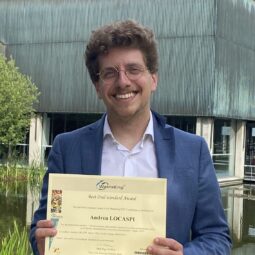
Alessandro Pegurri is a Ph.D. Candidate at the CRECK Modelling Lab at Politecnico di Milano under supervision of Dr. Ing. Alessandro Stagni, PhD. His research interests currently involve plastic waste thermochemical technologies, with a specific focus on gasification to obtain valuable raw materials. He previously worked on kinetics and lumping techniques applied to e-fuels.
Within the eLECTRO project, he focuses on modelling the secondary gas-phase reactions of the volatiles released from condensed-phase pyrolysis. His work is of key importance for scale-up from lab-scale to reactor-scale kinetic modelling.
He started his PhD in June 2022 at POLIMI. Before his PhD, he obtained a Master of Science in Chemical Engineering at POLIMI and worked for his master thesis in STFS at TU Darmstadt.

